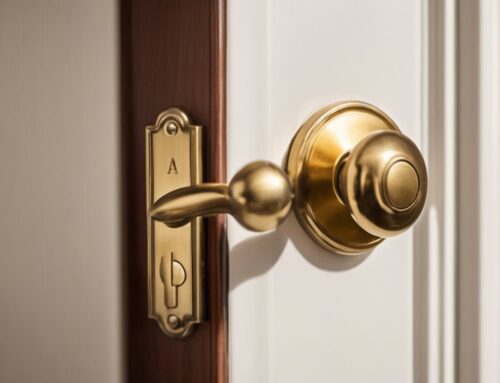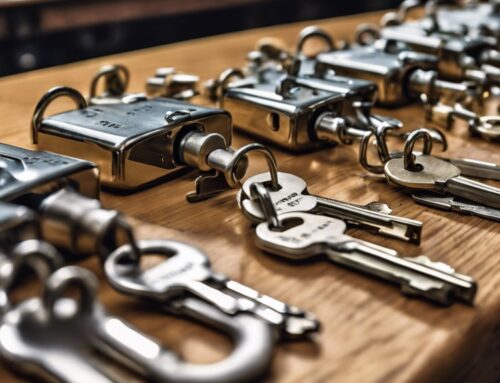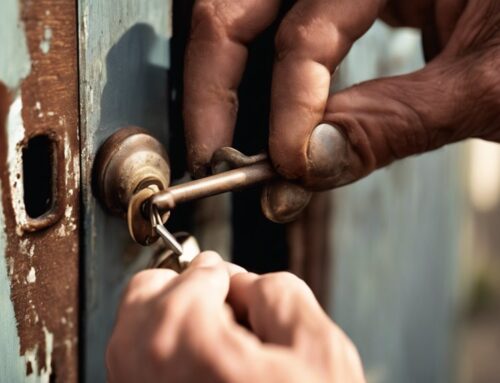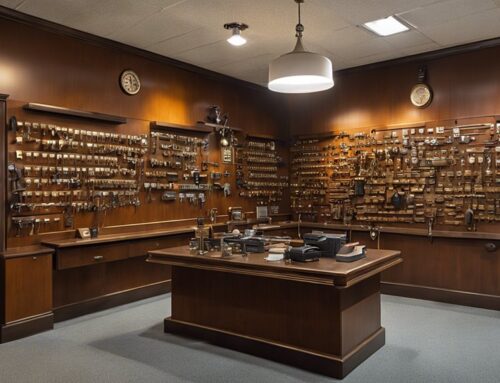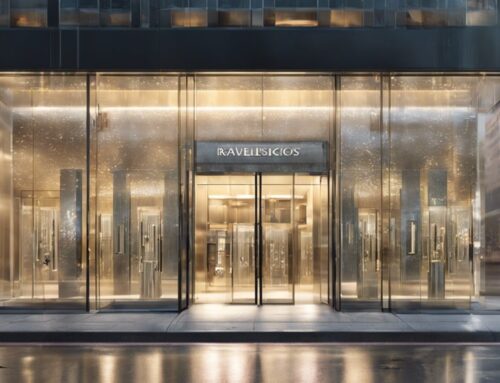On one hand, locksmiths hold the key to securing spaces, while on the other, they deserve protection under Illinois employment laws. You need to understand not just your rights, but also the responsibilities these laws impose on you and your employer. From wage requirements to safe working conditions, the framework is designed to guarantee fairness. But what happens when these regulations are not met? Exploring the intricacies of these laws could guarantee you're not only compliant but also empowered in your profession.
Key Takeaways
- Locksmiths in Illinois must receive a minimum wage of $14.00/hour in 2024, increasing to $15.00/hour in 2025.
- Employees are entitled to overtime pay at time and one-half for hours worked over 40 in a week.
- Discrimination based on race, gender, religion, or other protected characteristics is prohibited, ensuring equal employment terms.
- Employees have the right to report hazardous workplace conditions without fear of retaliation under OSHA compliance.
- Locksmiths must complete a 20-hour training course and meet continuing education requirements to maintain their licenses.
Licensing Requirements for Locksmiths

In Illinois, there are several key licensing requirements that potential locksmiths must meet to operate legally in the state. First, you must be at least 18 years old and demonstrate good moral character. If you've been convicted of a felony, at least 10 years must have lapsed since your full discharge from imprisonment. Dishonorable discharges from the armed forces and substance abuse issues can disqualify you as well.
Next, you're required to pass the State of Illinois Locksmith License Examination, which consists of 305 multiple-choice and true/false questions. This four-hour exam assesses your knowledge in areas like key origination, pin and disc cylinder servicing, lock opening techniques, and basic electricity. If you've taken the ALOA exam within the last three years, your scores can be applicable.
Moreover, a fingerprint-based criminal history check is necessary, with your fingerprints submitted within 60 days of applying. You'll also need to show proof of at least $1 million in general liability insurance, which must be submitted after passing your exam. Additionally, participating in a training program can enhance your skills and prepare you for the licensing exam.
When it comes to applying, you'll go through the Illinois Department of Financial and Professional Regulation (IDFPR) and pay the required fees. Be mindful if you intend to operate under a business name, as you'll need to register under the Assumed Business Name Act.
Formal training or prior work experience isn't a prerequisite for application, making the locksmith profession accessible to many.
Agency Licensing Regulations
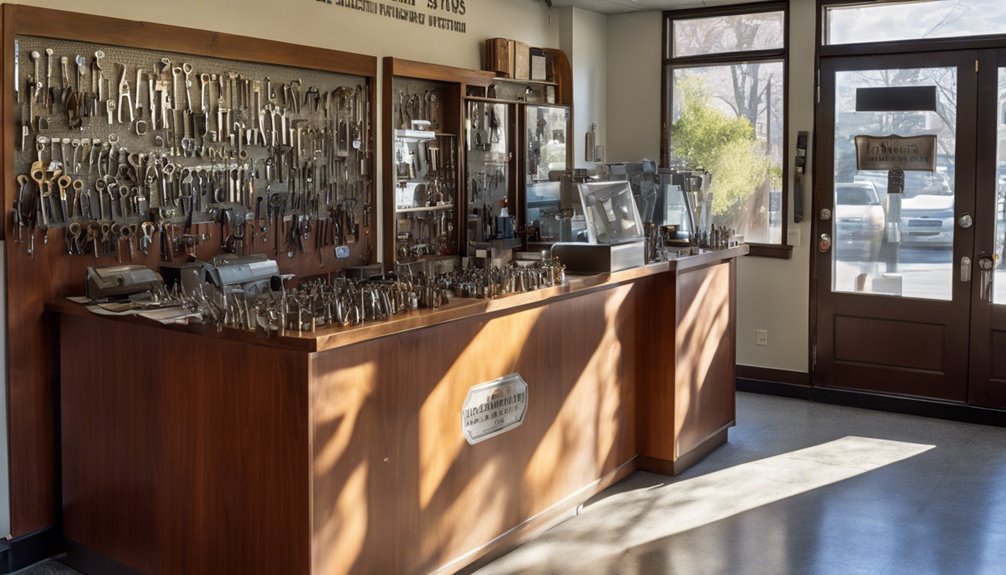
To operate a locksmith agency in Illinois, you need to understand key regulations, including the licensee-in-charge requirements and the process for registering an assumed name. It's essential to guarantee that your agency complies with the licensing authority's standards, which includes providing accurate information and maintaining valid documentation. Additionally, having a thorough understanding of licensing and regulations can help you navigate compliance effectively. Moreover, following regulatory measures ensures that your agency upholds ethical practices and promotes consumer trust. Keep in mind that any oversight in these areas can lead to significant setbacks in your agency's operations, especially as awareness of current industry standards enhances your adherence to regulations.
Licensee-in-Charge Requirements
A locksmith agency in Illinois must designate a licensed locksmith as the licensee-in-charge, guaranteeing compliance with state regulations. This role is essential for maintaining the agency's licensure. The licensee-in-charge must be a full-time, licensed locksmith, and you can't serve in this capacity for more than one agency at a time. It is crucial for the licensee-in-charge to ensure the application requirements are meticulously followed during the licensing process. Additionally, adherence to essential lock safety standards is critical for the agency's operational integrity. In order to maintain professional standards, the licensee-in-charge must be knowledgeable about apprenticeship laws and ensure all employees receive the necessary training.
Here's a quick overview of the requirements and responsibilities associated with the licensee-in-charge:
| Requirement | Description | Notes |
|---|---|---|
| Designation | Must have a full-time licensed locksmith | Only one agency per licensee-in-charge |
| Application | Name and license number must be included | Additional corporate documentation needed |
| Operational Responsibilities | Guarantee compliance with all licensing laws | Responsible for agency's continued operation |
| Loss Protocol | Request a temporary certificate if lost | Must do so within 10 days |
| Regulatory Compliance | Maintain accurate records | Officers must be of good moral character |
This structured approach enhances compliance and guarantees the agency operates smoothly within the legal framework. Understanding these requirements is essential if you wish to navigate the locksmith industry effectively in Illinois.
Assumed Name Registration
When establishing a locksmith agency in Illinois, registering an assumed name is an important step that requires adherence to specific regulations. This process is mandatory for business entities like sole proprietorships, general partnerships, and professional services corporations. If you're an individual locksmith operating under your own name, this requirement doesn't apply to you.
To start, you need to register your assumed name with the local county clerk's office. You can handle this process online or in person. It's vital to complete the registration before using the name for business purposes, as it includes providing your business name, address, and other pertinent details. Additionally, it's crucial for locksmiths to ensure that their services comply with the laws on rekeying to maintain their credibility in the rental market.
Don't forget there's a registration fee you'll need to pay. Your application must also outline all trade names you've used. If you're operating a corporate entity, be prepared to submit additional documents like your Articles of Incorporation and a Certificate of Good Standing.
Importantly, you can register only a single assumed name, and it mustn't imply any affiliation with law enforcement or government. Make sure you stay compliant with Illinois Compiled Statutes and administrative codes as you navigate this registration process. Additionally, understanding landlord and tenant obligations regarding lock changes can help ensure your locksmith services align with local laws.
Licensing Authority Oversight
Registering an assumed name is just the first step in establishing your locksmith business in Illinois, as you'll need to comply with specific licensing requirements set forth by the Illinois Department of Financial and Professional Regulation (IDFPR).
To operate legally, you'll need to be at least 18 years old and demonstrate good moral character, free of addictions and felony convictions.
You must pass the Illinois Locksmith License Examination, which consists of 305 questions, and you should apply at least 60 days prior to the exam date. Alternatively, completing an approved 20-hour basic training course can qualify you for licensure. Additionally, understanding your role in eviction procedures can be crucial for locksmiths in this state.
If you're forming a locksmith agency, you need to register it under a licensed locksmith who'll serve as the licensee-in-charge. Remember, no one can hold this position for more than one agency.
The IDFPR oversees licensure, ensuring compliance and the integrity of the profession. Renewals are required every three years, and the department may disapprove a new licensee-in-charge if there are concerns about their qualifications. Additionally, licensed locksmiths are expected to understand their obligations regarding the legal processes that may involve them, such as eviction procedures in Illinois.
Background and Security Checks

Even though securing a locksmith license is vital for your career, it's important to understand the stringent background and security check requirements in Illinois. These rigorous checks guarantee that you're trustworthy and well-equipped to handle sensitive information, particularly when dealing with security-related tasks. Understanding the nuances of lock picking laws can further enhance your compliance and knowledge as a locksmith.
To get licensed, you must undergo a criminal background history check, which includes fingerprint processing conducted through an authorized vendor. It's important to present valid identification, such as a state driver's license or ID card, which the vendor will record. Additionally, if you're employed by a locksmith agency, all employees with access to security information must pass security checks as well.
Here's a breakdown of the background and security check components:
| Requirement | Details | Additional Notes |
|---|---|---|
| Background Check | Criminal history check including fingerprinting | Must use authorized vendor |
| Security Clearance | Check for felony convictions; good moral character needed | 10-year discharge rule applies |
| Identification | Permanent Employee Registration Card (PERC) required | Two IDs must be carried at work |
Maintaining compliance with these regulations is non-negotiable. The Illinois Department of Financial and Professional Regulation (IDFPR) oversees this process. Failure to comply can result in licensing complications or disciplinary action, solidifying the importance of understanding these checks as part of your locksmith journey. Additionally, operating as an unauthorized locksmith can lead to significant legal repercussions, including penalties for unauthorized locksmithing.
Training and Certification Standards

To successfully navigate the locksmith profession in Illinois, you'll need to meet specific training and certification standards that confirm you're well-prepared for the responsibilities ahead.
First, you must complete an approved 20-hour basic locksmith training course. This training can stem from reputable sources like the Lockmasters Security Institute, Cothron's Locksmith, or Pop-A-Lock, among others. If you've attended a U.S. military school focusing on locksmithing or hold a certificate from a Department of Labor Apprenticeship Program, that training can also count.
Once you've completed your training, you'll need to pass the Illinois Locksmith License Examination. This exam features 305 multiple-choice and true/false questions, testing your vast knowledge in locksmithing principles. It's conducted twice a year, in March and September, with applications due at least 60 days before testing.
Alternatively, if you've earned ALOA certifications (CLL, CRL, CPL, CML) within the past three years, these can also facilitate your licensing process but come with a $500 fee.
To maintain your license, you'll be required to undertake 24 hours of continuing education every three years. This guarantees you stay current with industry advancements and practices.
Operational Compliance Guidelines

While steering through the locksmith profession in Illinois, it's important to adhere to operational compliance guidelines that guarantee your business functions legally and ethically.
First and foremost, you must obtain a license from the Illinois Department of Financial and Professional Regulation. This requires you to be at least 18 years old, demonstrate good moral character, and pass a licensing exam. Don't overlook the criminal background check and the necessary fees involved—these steps are non-negotiable.
If you're planning to employ staff, you need a locksmith agency registration in addition to your personal license. Make sure your business has a physical address within the state; using a PO Box isn't acceptable. If you're operating under a fictitious name, it's important to register as "doing business as" with your county.
Remember, all partners in a partnership must also hold locksmith licenses.
Liability insurance is another significant aspect—it's mandated by law that you provide proof of at least $1,000,000 in coverage. Be prepared to submit this documentation after passing the exam, making sure you understand liability issues, particularly regarding the Americans with Disabilities Act compliance for lockset functions.
Lastly, verify you've completed all necessary security clearances, including fingerprinting. If you're leveraging a peace officer background, you might waive this step.
Maintain organized records of your supporting documents, as they're critical for successful compliance. Following these guidelines not only protects your business but also enhances your professional integrity.
Labor and Employment Rights

Understanding the labor and employment rights applicable to locksmiths in Illinois is essential for both compliance and fostering a positive work environment. As a locksmith, knowing these rights not only empowers you but also helps in creating a fair and equitable workplace.
Here's a summary of key labor and employment rights:
| Right | Details |
|---|---|
| Minimum Wage | $14.00/hour (2024), $15.00/hour (2025) |
| Overtime Pay | Time and one-half for hours over 40 in a week. |
| Meal Periods | 20-min meal for shifts over 7.5 hours; 40-min for 12+ hours. |
| Rest Periods | At least 24 hours of rest in 7 days. |
| Leave Rights | Up to 12 weeks unpaid leave for certain domestic violence situations. |
You should also be aware that your employer is required to display labor law notices where you can easily see them. These laws not only apply to larger employers but also protect domestic workers, guaranteeing that even those in small settings have rights.
Employers must guarantee reasonable bathroom breaks, and they cannot hinder you from taking care of your well-being during work hours. By understanding these provisions, you can assert your rights confidently, contributing to a work environment that values freedom, respect, and fair treatment. Stay informed, and don't hesitate to raise questions or concerns if you feel your rights are being violated.
Discrimination Protections for Employees
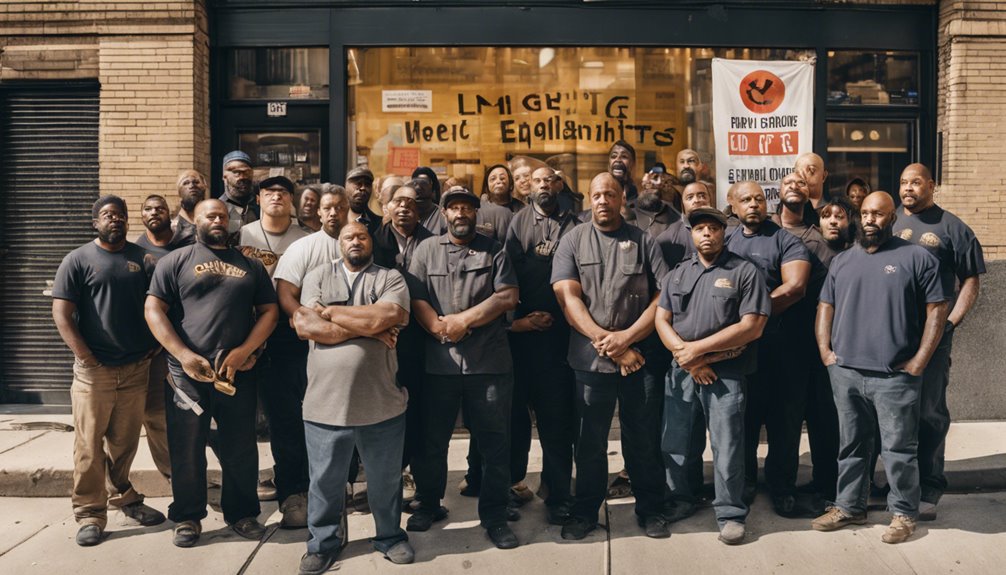
In Illinois, you're protected against discrimination based on specific characteristics like race, religion, and sexual orientation.
It's crucial to understand how prohibited practices can impact your rights in the workplace.
If you experience discrimination, knowing how to report these incidents is essential for enforcing your protections.
Prohibited Discrimination Practices
Prohibited discrimination practices in Illinois guarantee that all employees, including locksmiths, are treated fairly and equitably in the workplace. Under state law, discrimination based on race, color, sexual orientation, gender identity, age, religion, national origin, and other protected classes isn't allowed. This includes discriminatory actions in hiring, promotions, job assignments, pay, and benefits.
Additionally, employers must provide equal terms and conditions of employment, ensuring that all employees have appropriate working hours, vacation time, and sick leave without bias. Harassment of any kind, including racial or sexual harassment, is strictly prohibited, fostering a safe working environment.
Employers are also responsible for reasonable accommodations for disabilities and religious practices, maintaining confidentiality for such requests. If employers fail to meet these obligations, it can be considered discrimination.
The law demands adherence to equal treatment in performance evaluations, disciplinary actions, and union representation. Compliance is critical, as non-compliance can result in penalties, emphasizing the need for locksmiths to understand their rights and for employers to uphold these essential standards for a just workplace.
Reporting Discrimination Incidents
When faced with discrimination incidents, it's essential for employees, including locksmiths, to know how to report these issues effectively.
Start by contacting the appropriate agencies, such as the Equal Employment Opportunity Commission (EEOC) at 800-669-4000 or the Illinois Department of Human Rights at 312-814-6200. You'll need to complete a Complainant Information Sheet for the state, which can be submitted in various formats—by mail, fax, in person, or even online in Chicago.
Remember, supervisors are legally obligated to report any discrimination they witness, while you should file complaints within designated timeframes—300 days for federal complaints, two years for state cases, or one year for Fair Housing.
Providing complete and accurate information is vital, including your contact details, your employer's information, and a thorough description of the incident.
Keep in mind confidentiality and support mechanisms available through the Office for Access and Equity.
Timely reporting not only guarantees your complaint is taken seriously but also protects your rights under Illinois law.
Don't hesitate to seek help if you need it; your freedom from discrimination is paramount.
Safety Regulations and OSHA Compliance

Locksmiths in Illinois must adhere to rigorous safety regulations and OSHA compliance standards that protect both workers and the public. Understanding these regulations is crucial for your safety and that of your clients.
Here are three key safety regulations you should be aware of:
- Workplace Safety: Employers are required to provide a safe environment, including fall protection, trenching safety, and confined space safety.
- Hazard Monitoring: Regular monitoring of workplace hazards is mandatory, alongside maintaining records of any injuries or illnesses that occur on the job.
- Training Obligations: You must receive training in a language you understand to guarantee full comprehension of safety practices and hazards.
As a locksmith, you must also be aware of your rights under OSHA. You have the right to a safe workplace, access to information regarding workplace hazards, and protection from retaliation if you report unsafe practices.
Employers must provide proper safety equipment, including fall protection gear and respiratory protection, to mitigate risks associated with your work.
Inspection and enforcement are a collaborative effort between federal OSHA and Illinois Department of Labor (IL OSHA). They conduct inspections and you have the right to participate in these processes.
If you notice violations or feel unsafe, you can report them without fear of retaliation, promoting a workplace that prioritizes your safety.
Stay informed and proactive about these regulations to safeguard your well-being and that of your clients.
Frequently Asked Questions
Can Locksmiths Work Without a License in Illinois?
As of now, locksmiths in Illinois must hold a valid license to legally operate.
You can't bypass this requirement until January 1, 2029, when regulations will expire under the Regulatory Sunset Act.
After that date, anyone can work as a locksmith without needing a license.
Until then, it's essential to follow existing regulations, pass the necessary exams, and comply with background checks to practice lawfully in the state.
What Should I Do if My License Is Suspended?
If your license is suspended, you can't practice until it's restored.
First, you'll need to review the suspension details and guarantee you understand any specific conditions. You can appeal the suspension within 35 days if you believe there's grounds for it, like procedural errors.
Once the suspension period ends, file a Petition for Restoration, submit necessary documentation, and pay any fees.
Compliance with probation terms is essential for re-establishing your license.
Are Locksmiths Entitled to Health Benefits?
You're not universally entitled to health benefits as a locksmith.
If you work for the state, you'll enjoy a solid benefits package, including health, dental, and vision insurance.
However, private employers aren't required to offer health benefits, so it can vary greatly. Some may provide options voluntarily, while others mightn't offer anything at all.
It's wise to explore personal or family insurance coverage if your employer doesn't provide health benefits.
How Can I Report a Workplace Violation?
Did you know that around 70% of workers who've reported workplace violations experienced retaliation?
To report a violation, you can file a complaint online with the Illinois Department of Labor, using their wage claim forms for unpaid wages or safety hazards.
If you prefer, send a printable form via mail or fax.
Your rights to safe work conditions and fair treatment matter, so don't hesitate to take action when needed.
What Are My Rights During a Workplace Investigation?
During a workplace investigation, you have essential rights.
You should be informed about the investigation's nature and allegations against you.
You're entitled to be interviewed and provide your statement while being treated fairly.
The process must respect your privacy and guarantee all parties' rights are upheld.
You also have the right to know the investigation's outcome and any subsequent actions.
If you believe your rights are violated, seek assistance from external entities.
Conclusion
In conclusion, understanding Illinois employment laws for locksmiths is essential for ensuring fair treatment and compliance in the workplace. Did you know that the locksmith industry in Illinois employs over 5,000 professionals? This significant number highlights the importance of knowing your rights regarding wages, safety, and discrimination. By staying informed about licensing requirements and operational regulations, you can protect yourself and contribute to a safer, more equitable work environment for all locksmiths.


